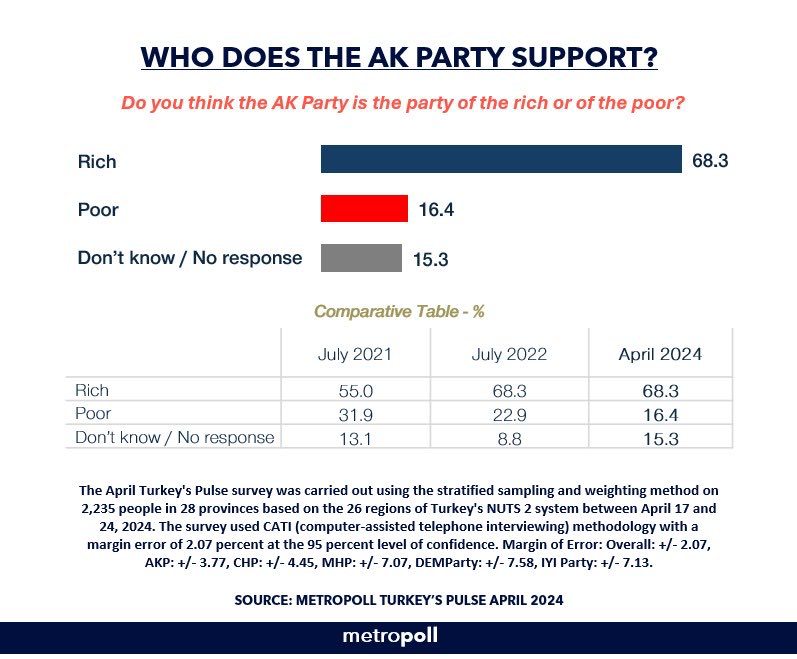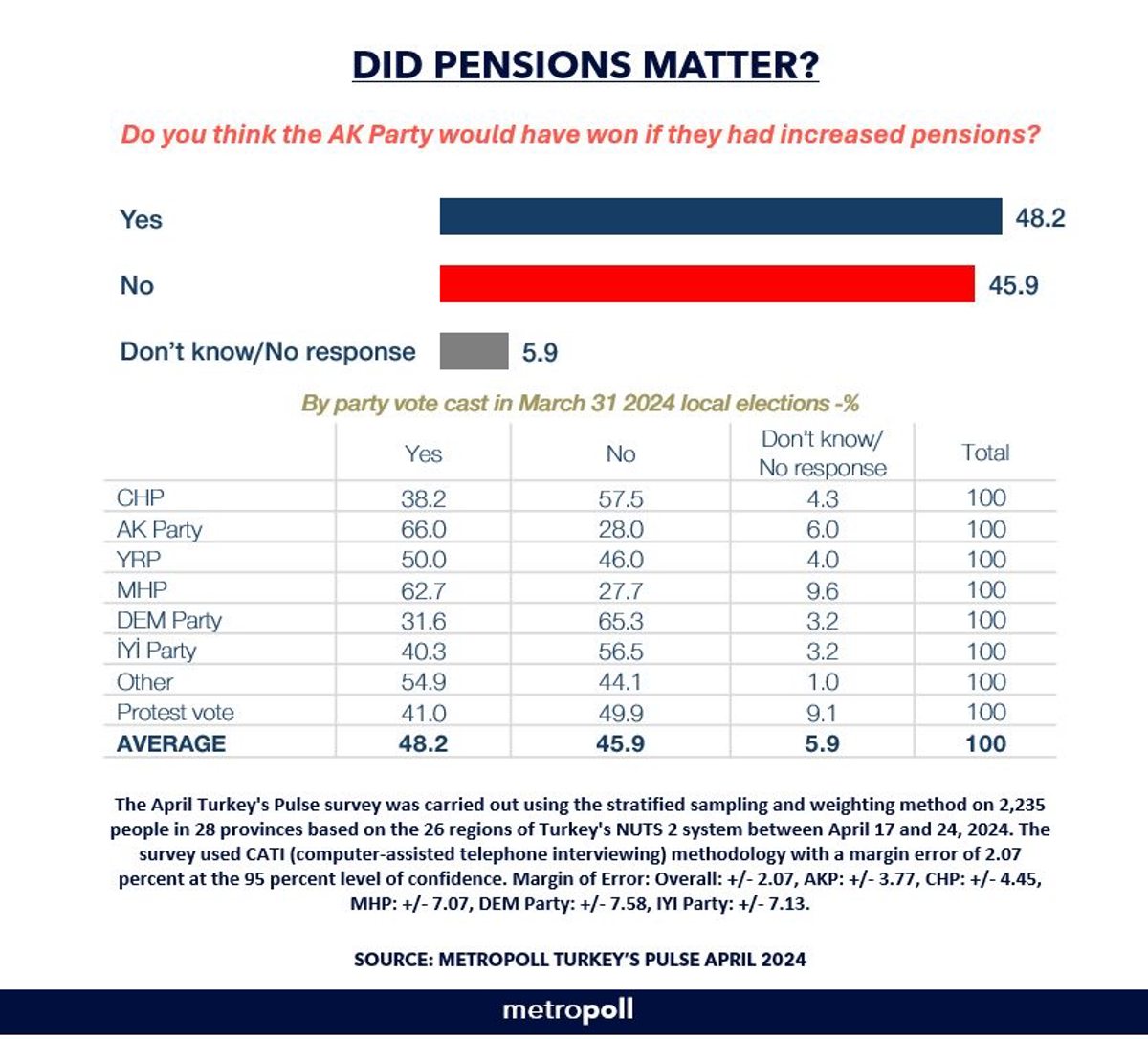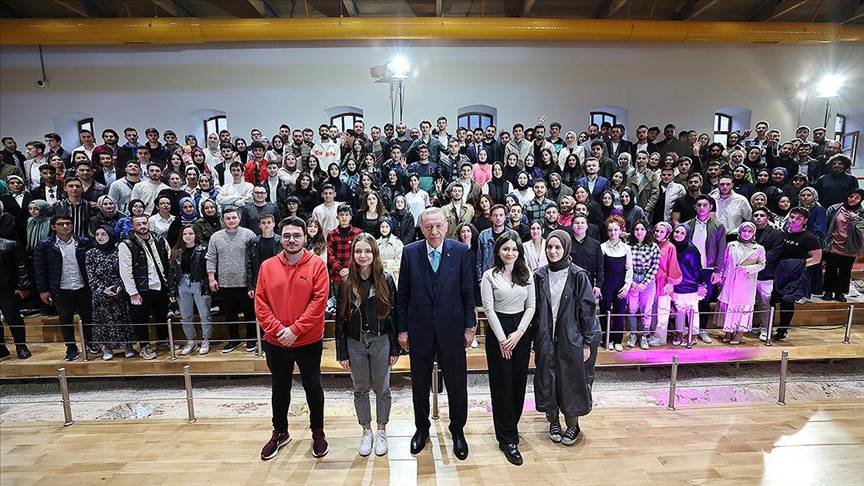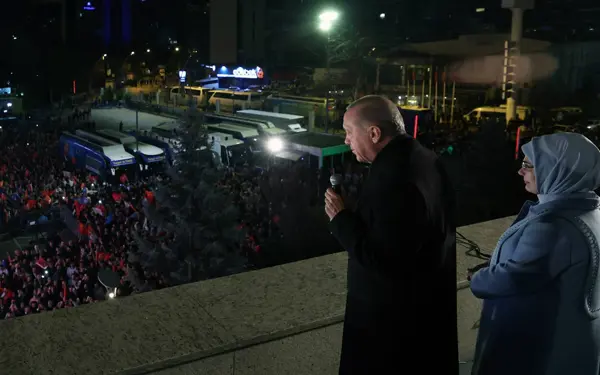The ruling Justice and Development Party (AKP) led by President Recep Tayyip Erdoğan has experienced a notable loss of support among the country's youngest and poorest voters in the March 31 local elections, a new survey has found.
These elections are seen as the AKP’s most significant setback in its rule spanning over two decades. The main opposition Republican People’s Party (CHP) secured 35 of the 81 cities, including 14 of the 30 metropolitan municipalities, among them İstanbul and Ankara. The AKP, on the other hand, won in 24 cities, including 12 metropolitan areas. Currently, cities that collectively represent about 65% of Turkey's population and 80% of its economic capacity are under CHP control.
The economic challenges faced by the country is seen as the driving factor behind the results, as the government switched to a more orthodox policy following the 2023 election, leading to austerity measures. However, the government has not yet been able to bring the inflation under control and millions are still struggling to meet their basic needs.
This situation was also reflected in the Metropoll survey, where over 68% of the respondents said the AKP supports the rich.

The survey conducted in April also reveals a reversal in the distribution of votes among age groups compared to previous years. The survey indicates that the CHP has gained considerable traction among the 18-24 age demographic, traditionally a stronghold for the AKP. The opposition party emerged as the most reputable party within this age group, securing 19.2% of the vote, while the AKP trailed behind at 13.9%.
This shift suggests that the AKP's dominance across all age groups in past years has been challenged, with the CHP capturing the central voting bloc of 18-24-year-olds, a critical segment for future elections. Additionally, the AKP recorded its lowest vote share within this group.
The survey also highlights the rise of the Victory (Zafer) Party, known for its nationalist and anti-refugee stance. While the party wasn’t able to win any municipality, it achieved a 12% vote share among the 18-24 age group, significantly higher than its national average.
While the AKP maintains a lead in the 35-44 and 45-54 age brackets, its Nationalist Movement Party (MHP) saw its highest vote percentages, 7.3%, within the 25-34 age group.
Impact of the pensioners
A hypothetical scenario posed by Metropoll explored the potential impact of pension increases on election outcomes. According to the survey, 48.2% of respondents believed that a satisfactory adjustment to pension payments could have swayed the election in favor of the AKP.

Currently, the lowest pension pension stands at 10,000 liras (~310 US dollars), leaving millions of people in serious difficulties in making ends meet in an environment of high inflation. The basic nutrition expenses for a family of four was calculated at 16,646 liras in March by union confederations, indicating the insufficiency of the minimum pension basic needs.
Before the elections, there was a significant call for raising the minimum pension, but the president dismissed these requests, citing concerns that an increase would jeopardize the payment of public servant wages.
Özer Sencar, the head of Metropoll, cautioned against overconfident predictions based on these results, stating that both the unexpected magnitude of the CHP's victory and the AKP's defeat should be approached with care when considering future implications. (AEK/VK)








